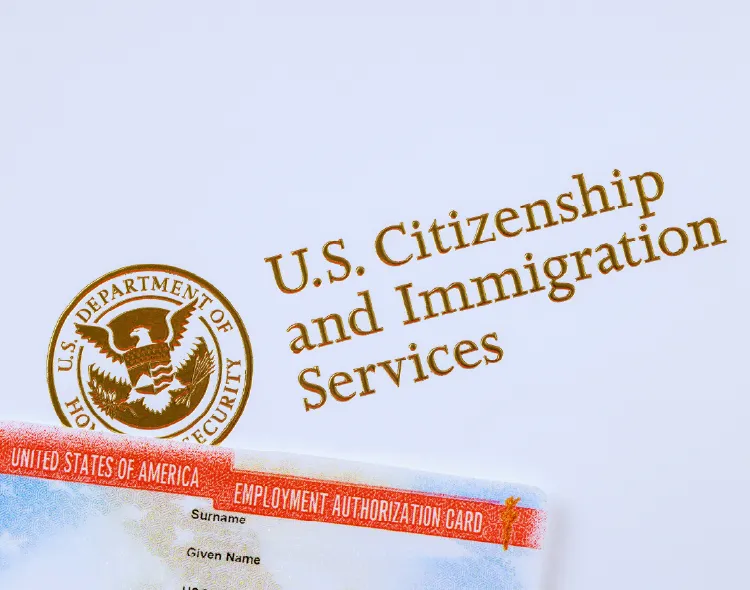

On October 30, 2025, the U.S. Department of Homeland Security (DHS) published an Interim Final Rule (IFR), “Removal of the Automatic Extension of Employment Authorization Documents,” in the Federal Register that will end the automatic extension of Employment Authorization Document (EAD) cards based on the timely filing of a renewal application.
IFRs are effective immediately upon publication in the Federal Register. This IFR notes that it will impact only those EAD renewal applications filed on or after October 30, 2025. However, the IFR will not impact automatic extensions of EAD validity for cases filed prior to that date. The rule, therefore, will not impact people who are already enjoying the convenience of a 540-day automatic extension. However, the IFR does note that pursuant to 8 C.F.R. §274a.13(d), DHS may terminate any EAD or extension period by written notice to the applicant, via a notice to a class of individuals in the Federal Register, or as provided by statute or regulation.
By way of background, DHS policy, “Automatic Employment Authorization Document (EAD) Extension,” currently provides that when an individual timely files an application to renew an existing EAD card in the same EAD category, their employment authorization is automatically extended for up to 540 days following expiration of the individual’s current EAD card. This automatic extension is often necessary because EAD renewal applications cannot be filed until six months in advance of the individual’s current EAD expiration date, yet the processing time for the adjudication often exceeds 180 days. For example, the Phillips Lytle Immigration team is currently representing multiple clients with EAD renewal applications that have been pending for over a year.
Effective for all EAD renewal applications filed on or after October 30, 2025, if there is any lapse in one’s EAD validity period, he or she must stop working upon expiration of the EAD card and can only resume employment upon receipt of the new EAD card. Given the lengthy delays in EAD processing, this will result in extended periods of unemployment for a wide swath of the immigrant public. This includes EADs based on a pending adjustment of status, those with H-4 EADs, as well as several other EAD categories. Limited exceptions to the IFR include EAD extensions provided by law or through a Federal Register notice for TPS-related employment documentation (“Temporary Protected Status”).
Additional Assistance
For more information, please contact a member of our Immigration Practice Team or the Phillips Lytle attorney with whom you have a relationship.
Receive firm communications, legal news and industry alerts delivered to your inbox.
Subscribe Now